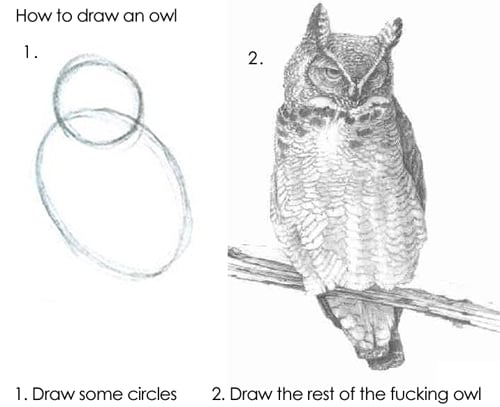

The nazis, too, had a lot of power and yet they lost WW II.


The nazis, too, had a lot of power and yet they lost WW II.


it’s called the Paradox Of Tolerance.


Yeah there’s actually documentaries about this: like this (it’s in german though)


… hearkens back to basic Judeo-Christian values of kindness, human dignity, humility and prosperity.
says the Republican


The technological innovations of the last fifteen years, from advertising enshittifcation to AI cheating, have largely been a disaster. We are sadly at the point where, as Ted Gioia says, “most so-called innovations are now anti-progress by any honest definition.” I dare say that if we could revert all digital technology to where it was in 2009 – before the invention of the retweet – we’d all be better off.
I’d go back even further (to 2007) before the invention of the iPhone. The smartphone has, arguably, IMO been a bad, or at least premature invention. It created a generation of kids obsessed with their photographies, giving girls eating disorders and creating/spreading unrealistic beauty ideals, etc… Also it has severely disrupted teenagers’ social living, created sleeping disorders, chronic doomscrolling, addiction, and more bad stuff. The iPhone was, IMO, not ready for this world.


Depression has many causes:


isn’t that why the hippie movement ended?


btw I read the guardian a lot, and they have a lot of good articles.


… and I came to believe that our current cosmology is incomplete or wrong.
Well, yes, I agree with you.


Ok maybe my numbers were a little bit off but the point is: if the universe were created slowly, we’d see clear traces of that. but the evidence points into the opposite direction, that the universe, at some point, was very hot and dense, before stars started forming. So the question is, where would all that matter come from? I deem it’s unlikely to all just be “one huge quantum fluctuation”, but i’m not sure about that; cosmology is exotic sometimes.


Our theoretical framework, allowing matter creation (*) provides a possible origin for the universe (without the need of a Big Bang).
If you look at the typical composition of a star today, you will find that it is mostly (99%) hydrogen.
We know that a star burns hydrogen into helium, and therefore the relative fraction of hydrogen in the star’s composition decreases annually by a specific rate (let’s say 0.0000001%). That means that a star might have an average lifetime of 1 billion years, before its composition changes and it has only small fraction of hydrogen left.
If the universe were created slowly (by a slow process, such as spontaneous particle creation would be), then stars would burn out while they are being created; In other words, we wouldn’t see stars that are mostly unconsumed hydrogen, but instead, stars that are mostly already consumed helium, with slow rates of hydrogen being created continuously.
But that would lead to stars having a drastically different composition: instead of 99% hydrogen and 1% helium, we might see 1% hydrogen and 99% helium. That is why I believe a “slow creation” of the universe to be unlikely.


To me personally, settling mars has nothing to do with colonialism, or capitalism, or hookers and blackjack. It’s about the fact that humanity is like a steam engine, and somebody threw too much coal into that thing. Now it’s cooking hot, and one way to keep it from exploding is to “release steam” (in a metaphorical sense). That means, settling off to some other planet.


I guess it’s like german “Realität”/“Wirklichkeit” (both meaning reality).
I understand “Realität” (reality) to mean something “real”, like something touchable. Language, and literature are not “real” to me. They’re “wirklich”, but not “real”.


fair



This applies for computer games as well.
Just saying “just make a game that people actually want” doesn’t really help.


Yeah, but actual numbers would be nice.


It would be relevant compare SpaceX’s environmental damage to that of any other big company.


Very interesting read.
I also like how, at the end, it changed perspective to say “actually, our problem is not software, but politics”.
We must be aware of what agents we encourage and discourage through our actions.


so, Facebook?
Yeah, I predict that in the future, you can’t expect that content on the internet is written by humans. If you go to the internet, then it will probably not be to connect to other humans. Maybe you want to know something that a bot can tell you or you have some administrative task to fulfill, like filing a form.